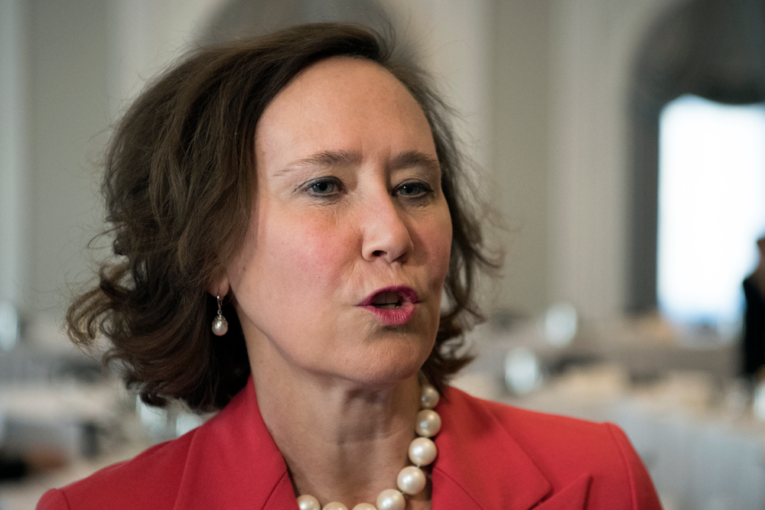
CALGARY – Alberta and Saskatchewan blasted the federal government over energy policy at a First Nations event Monday, urging Indigenous communities to fight against what they called Ottawa’s “abysmal” policy.
In a speech to the National Coalition of Chiefs’ Energy and Natural Resources Summit on the Tsuu T’ina Nation reserve near Calgary, Sakatchewan Energy and Resources Minister Bronwyn Eyre reiterated her government’s call for a “new deal” between the province and Ottawa.
Following last month’s federal election that returned Prime Minister Justin Trudeau’s Liberal government to power, Alberta and Saskatchewan have warned that Western alienation is on the rise on the Prairies. No Liberal Members of Parliament were elected in either oil-producing province. Since the election, Saskatchewan has publicly called for a “new deal” with Ottawa, while Alberta has said it would hold a referendum on the issue of equalization payments to the federal government.
“Energy is a national unity issue,” Eyre said in the speech that touched on issues of Western alienation, natural resource development, federal energy policy and First Nations communities developing their own natural resources.
“How condescending to think of First Nations attitudes toward energy as being all the same,” Eyre said in the speech that also blasted Ottawa’s ban on oil tankers on the northern part of the British Columbia coast as one that pits “east against west, west against west and also First Nation against First Nation.”
“In so many ways, you hold the key,” she said to the First Nations chiefs, many of whom have struck joint ventures with companies and produce oil and gas from their reserves. “I think the federal government will listen to you.”
The event was hosted for First Nations chiefs to discuss economic development through natural resources projects and included Indigenous groups from Manitoba to British Columbia.
“Sometimes our male politicians don’t have the gonads, so we have to entrust it to our female politicians,” said Dale Swampy, president of the National Coalition of Chiefs, of Eyre’s speech. Swampy, who was the long-time CEO of the Samson Cree Nation in central Alberta, created the National Coalition of Chiefs after working in Indigenous consultation on the Northern Gateway pipeline.
In so many ways, you hold the key
Immediately after Eyre’s speech, Alberta Energy Minister Sonya Savage also delivered a blistering criticism of federal energy policies, which she likened to “burning things to the ground, then salting the earth.”
Like Eyre, Savage sharply criticized the ban on oil tankers off B.C., as well as Ottawa’s decision to cancel the Northern Gateway pipeline and other initiatives she said had hurt investment in the sector.
While there were some objections, much of the crowd in attendance for the conference said they supported the message.
“With the tanker ban, did they consult with any First Nations on the Coast? No. They’ve tied up a lot of the First Nations traditional territory. Can you do any economic development when your hands are tied?” said Chief Dan George, of the Burns Lake Band in B.C.
George is a director with the National Coalition of Chiefs and is supportive of a new TC Energy Corp. pipeline crossing his band’s territory.
However, the issue of negotiating new deals between the provincial and federal governments did raise some questions as some First Nations pointed out that treaties were negotiated with the Crown.
“If you’re doing a constitutional challenge, we begin to wonder what will happen to us,” said Chief Roy Fox of the Kanai Blood Tribe.
Fox also criticized Alberta for over-indulging the energy industry in some cases to the detriment of some First Nations. In particular, he said Alberta’s decision to impose limits on oil production in the province in a bid to lift prices had affected production on his reserve, which pumps 3,000 barrels of oil equivalent per day.
“You have to be careful,” he said.
In response, Savage said that she and her government are working to eliminate the production limits that were first imposed on the industry in January 2019, including through last week’s announcement that producers who ship more oil out of the province on railway cars would be permitted to increase their production.
“Nobody wants out of it more desperately than I do,” she said.
Financial Post
• Email: [email protected] | Twitter: geoffreymorgan
You can read more of the news on source
